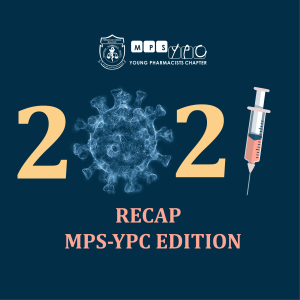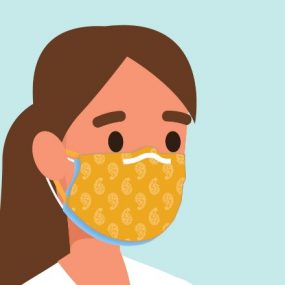#GovToPrivate: Private Hospital

In this series, ex-government contract pharmacists share their experiences in transitioning to the private sector in Malaysia. This article focuses on hospital pharmacy.
In the last installment of the #GovToPrivate series, we are honored to have Zher Yew and Yee Leng close the series with their unique journeys.
Both started their careers working in government hospitals during their PRP, and currently are FRPs working in the private hospital setting.
If you intend to pursue a role in this setting, we hope this article will provide you with some pointers and inspiration to make that dream a reality.
With that said, let’s dive in.
1. Tell us a little bit about your career background.
Zher Yew: I completed my one-year PRP training in Hospital Kajang. I continued serving in the outpatient pharmacy department of Hospital Kajang as an FRP for another 18 months before ending my journey with KKM.
Yee Leng: I graduated from International Medical University with a Bachelor of Pharmacy (Hons) in June 2018. Before I started my PRP, I worked as a pharmacist assistant in a retail pharmacy for 6 months. I then started my PRP journey in Hospital Putrajaya, completed it in 1 year, and continued as FRP in the same hospital. After a total of 18 months working in Hospital Putrajaya, I was transferred to Tanglin Health Clinic and worked there for 11 months. I was trained to provide RVD MTAC and smoking cessation services during my service in Tanglin Health Clinic.
In total, I have worked with the government for 2 years and 6 months. Since I did not get a permanent position with the Ministry of Health after completing my first contract, I decided to resign and join the private sector. I am now working as a pharmacist in Subang Jaya Medical Centre.
2. How did you prepare yourself for private opportunities?
Zher Yew: I actively participated in many online webinars during this pandemic season. The webinars covered various areas and topics, which helped me to understand the private industry better.
I had also approached my seniors and peers who are already in the private industry to listen to their personal journey and experiences over the years, as well as get their advice on how to prepare myself better before making the life-changing decision.
Being part of the MPS-YPC community and having the connections and network across different industries is also a major plus point as I get to have better insights into the private setting as we connect with each other.
Yee Leng: I always have a huge interest in clinical pharmacy, so out of all the different fields in the private sector, I knew that I wanted to become a hospital pharmacist. Hence, I worked hard during my PRP and FRP time while I was working under the Ministry of Health, to learn as much as I can, so that I will be well equipped with the skills and knowledge required to work as a hospital pharmacist in the future.
After I have decided to leave the government and venture into the private sector, I started looking for job opportunities at private hospitals actively, by sending in my resume to the private hospitals that I am interested to work at, and attending the interviews. These interviews are my opportunities to show the potential employers that I am capable of the job offered, so I made sure I prepare and practice my interviews well so that I can present the best of myself during those sessions.
3. What did you learn throughout transitioning from government to private? What are the differences in experience between working in government and in private?
Zher Yew: I have transitioned from a government hospital setting to a private hospital setting, expecting it to be a relatively smooth transition as hospital operations should be somewhat similar to each other, but it was proven otherwise.
It was a steep learning curve for me, especially during the first few months, but I am grateful to be given the opportunity to grow in a safe and encouraging environment. As a pharmacist in a private hospital setting, you will be trained to lead and manage the team independently, have the capability to mentor staff who are assigned to you, as well as handle administrative work on top of the daily operations of the pharmacy.
Yee Leng: One thing I learned through my transition from government to private is stepping out of my comfort zone and embracing the change. After working in the government setting for almost 3 years, I have built a comfortable career routine, and this has caused me to become complacent and wanting to stay in the government sector.
I felt very disappointed and lost when I knew I did not manage to get a permanent position in the government. This is when I knew I had to step out of my comfort zone and explore the many possibilities that are waiting for me in the private sector. Of course, change is never comfortable, this process has taught me to conquer my fear of rejection and have the courage to accept the challenges ahead of me!
The biggest difference between government and private hospitals is that government hospitals are fully funded by the government whereas private hospitals are sustained by their earned profit. Hence, working as healthcare providers in private hospitals means we have to juggle between providing high-quality patient care and ensuring profit to the company at the same time.
Besides, many people may think that the roles of pharmacists are very minimal in private hospitals because the specialists and consultants do not accept any intervention from us. However, this is not the case at all, although our suggestions may not be accepted at times, I see these as opportunities to learn from the physicians’ practice and experiences. As pharmacists, we always strive to provide the best patient care working alongside the physicians.
The comfort of working with the government allows us to get increments and promotions no matter how our performances are. On the other hand, bonuses and increments in private hospitals are all based on our performance. This becomes the motivation that pushes us to work hard and put in our best efforts in everything that we do in providing the best services to our patients.
4. What is your advice for contract pharmacists who wish to transition to this field?
Zher Yew: My advice would be not to worry about not having any experience in whichever field that you’re planning to try out, be it a private hospital, retail or community pharmacy, pharmaceutical industry, or even academic, just grab hold of any opportunities available to you.
No matter which field you’re switching into, you will require a completely new set of skills and at the end of the journey, you will be able to equip yourself with skills and experiences that add on values to you as a pharmacist.
Yee Leng: I personally think that it is very important to know what you want to achieve in your career, as there are actually a lot of options for pharmacists in the private sector. You might want to get connected with people who are currently working in the related field and ask them for their experiences and advice before making decisions. Instead of wasting time in areas that you are not interested in and regret in the future, it is better for you to focus on your interests and priorities while choosing which field to venture into.
I would say that the private world is rather competitive because the opportunities offered are limited, especially in private hospitals. Hence, you will need to be well prepared and stand out among all your competitors. It is undeniable that pharmacy-related skills and knowledge are very crucial, but there are many other soft and hard skills that may also be beneficial for your career in the private sector.
In addition, having a strong mentality is also important throughout the transition journey as it is very common to get demotivated especially when you face rejections and challenges. Treat each obstacle you face as experience to learn and grow. Do not give up easily, always pick yourself up and move forward until you achieve your goal.
Lastly, do not rush yourself, enjoy this transition process and grow along the journey. All the best!
Cover photo by National Cancer Institute on Unsplash













